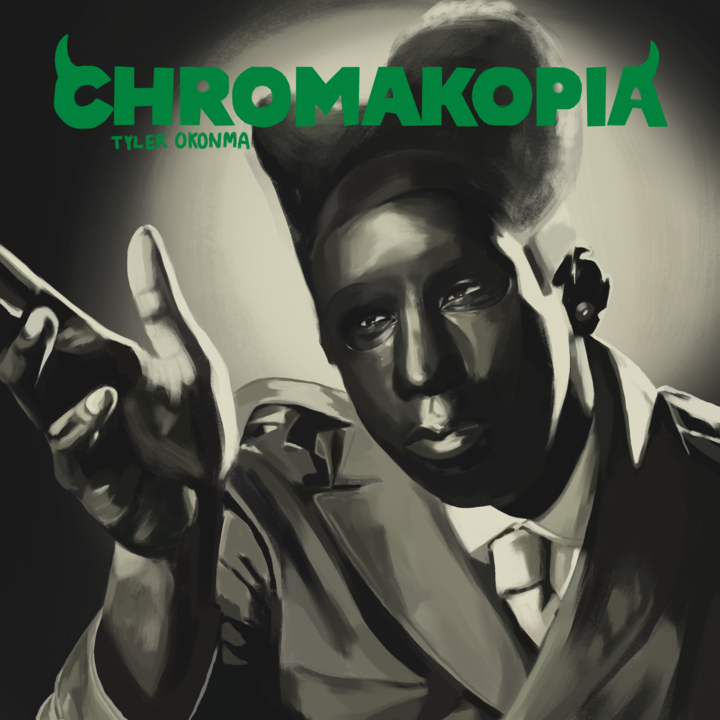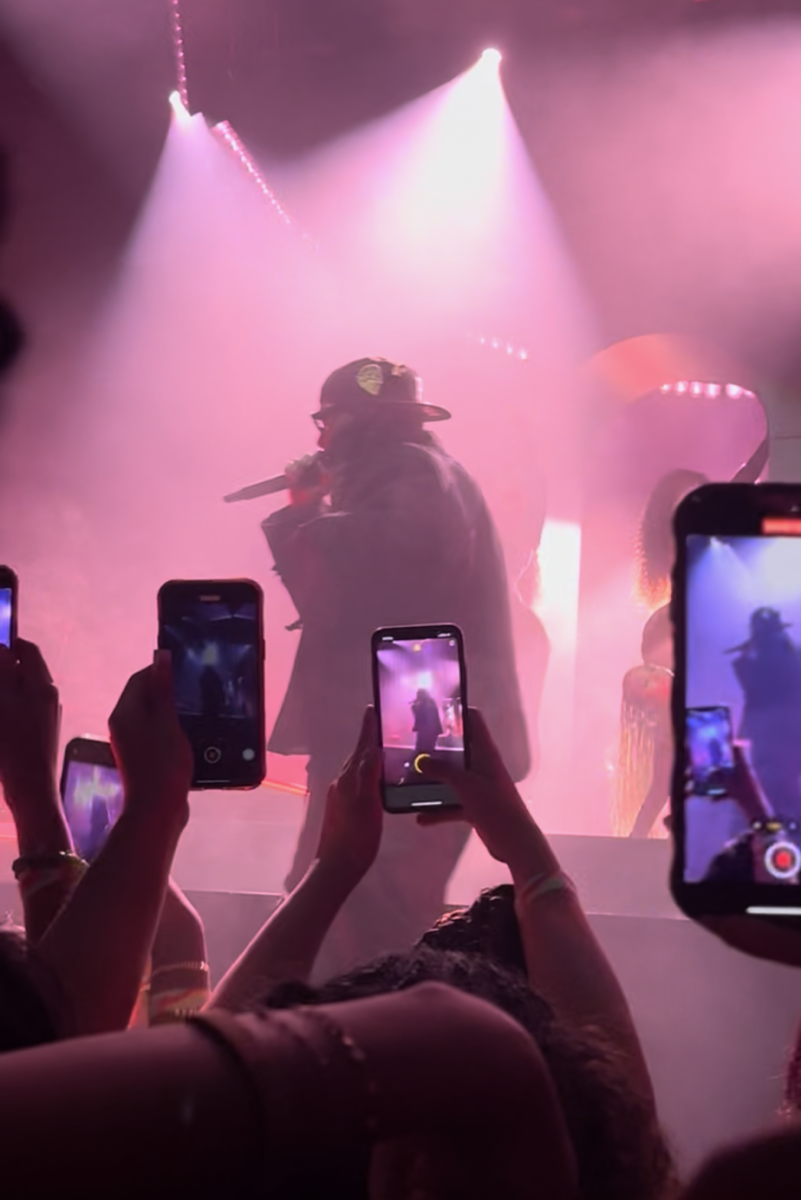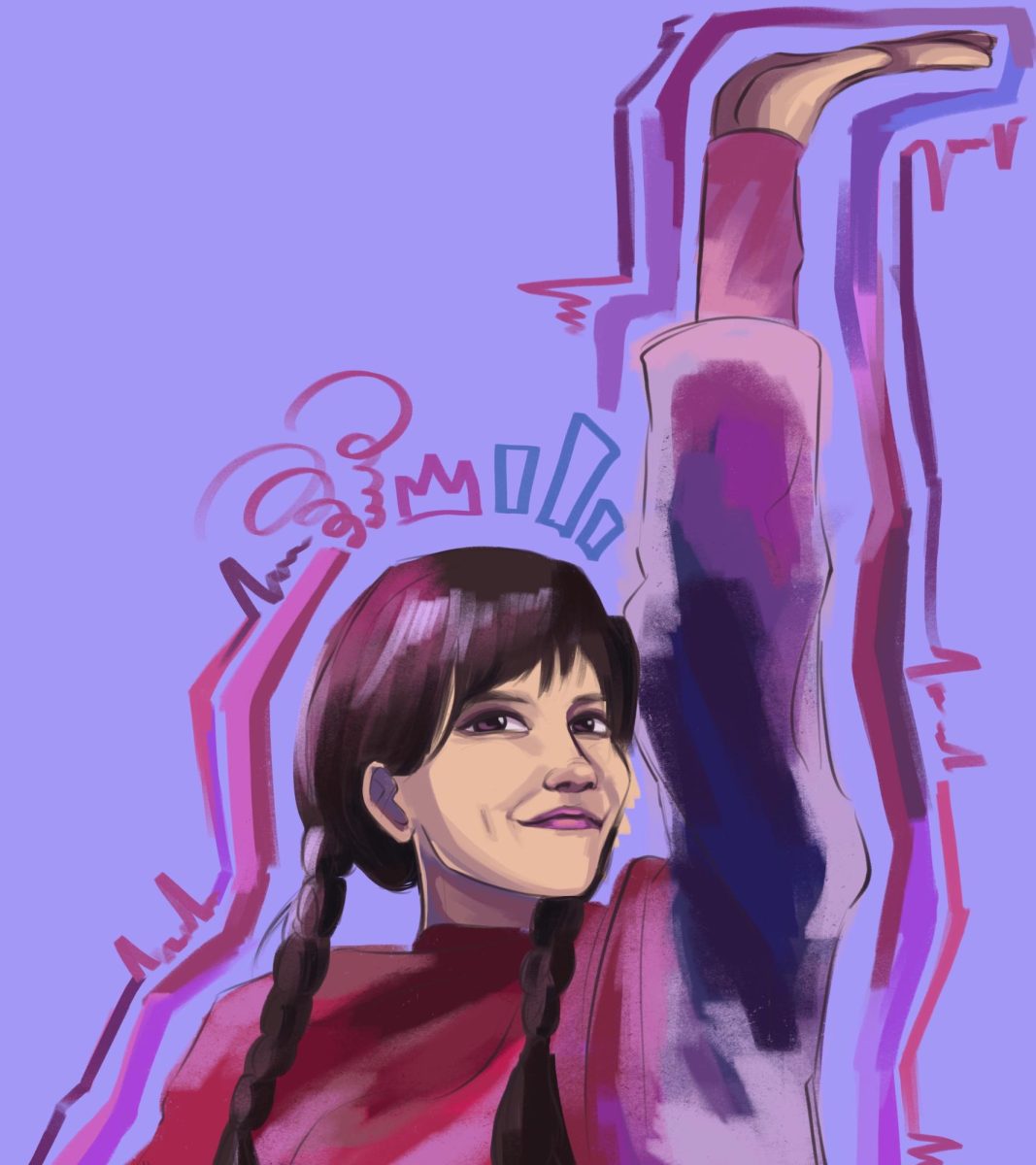“Do I look like him?”
So goes the most impactful and emotional lyric on rapper Tyler, the Creator’s 2024 record, “Chromakopia.” In the lyric, Tyler refers to his estranged father, but he could just as easily be talking about himself. With each new record, the rapper tends to develop novel characters, creating a mini-universe that has evolved with him throughout his career. On “Chromakopia,” though, Tyler subverts this expectation, addressing his own life outside of any fictionalized persona. He dares to ask: Who is Tyler, the Creator really supposed to be?
Tyler’s mother, Bonita Smith, narrates before and after several tracks, opening the album with: “You are the light / It’s not on you, it’s on you.” Her voice serves as a conduit between Tyler himself and the world of “Chromakopia” itself, which leans heavily on the traumas that have defined Tyler’s life thus far.
For instance, the track “Like Him” reveals that Tyler’s father, who was previously believed to have abandoned his son, was in fact driven away by his mother. Tyler grapples with this revelation, calling into question his lifelong anger towards his dad: “Mama, I’m chasin’ a ghost / I don’t know who he is.” Over a melancholic beat, Tyler laments the internalized hatred that drove him toward greatness. “Like Him” becomes a funeral hymn for the content childhood he never had. He accepts his mother’s decision, singing “I would nevеr judge ya/’Cause evеrything worked out without him,” closing the book on his father once and for all, and acknowledging his mother’s opening admonition: no matter the external circumstances, he drives the magnitude of his success.
The sheer vulnerability of Tyler’s personal reflections alone makes “Chromakopia” worth listening to. For any creative at his level of popularity, there is a distinct threat of becoming more of a brand than an artist. While Tyler does not veer into anything that could be considered unmarketable or controversial on the record, he does bring a certain rawness to the table. For longtime fans, many of whom have spent the past decade or so soundtracking their lives with Tyler’s music, this comes as a pleasant surprise.
Over the course of the record, Tyler picks at the scabs of other past wounds, nearly to a petty extent. On “I Hope You Find Your Way Home,” Tyler raps, “No Met Gala, but I’m everybody mood board,” a reference to his lack of invitation to fashion’s most prestigious event despite his clear influence on the industry’s landscape.
Staying true to his nature, Tyler tackles personal issues even in the multimedia associated with the record: “Noid”’s music video features the actress Ayo Edibiri as a crazed fan, mimicking the “stans” that pervade internet music culture and beyond. In a way, he comments on the necessary evil of the many ultra-invested fans that follow Tyler through his various ventures. Without them buying artist-branded clothes and attending festivals, he would not have reached the height of popularity that allowed for such contemplative work; yet without them, he could regain a certain sense of dignity and privacy that his notoriety deprives him of.
The rapper’s ability to lyrically pivot from everyday annoyances, such as overbearing fans, to watershed moments mirrors that of a seasoned portraitist, capturing the totality of his own career and its ripple effects on culture in a mere fourteen songs. To that end one finds themselves familiar with Tyler’s work before listening or not, “Chromakopia” acts as an anthology of sorts for Tyler’s career, cultivating a strong lyrical narrative even in the absence of a character.
Within the music itself, Tyler continues this trend. Instead of following his tendency to start from scratch with the auditory feel of a character, Tyler chooses to meld all of his eras into one. This decision makes for a final product that vacillates between the braggadocious sound of of Tyler’s older albums a la “Cherry Bomb” on tracks like “Thought I Was Dead,” and the warm, romantic tone of recent records like “Call Me If You Get Lost,” which finds its place on “Judge Judy.” This decision underscores the importance of each preceding album to Tyler’s psyche, but also obstructs the newness of the lyrics’ subject matter, making the production one of the record’s weaker points.
This lack of innovation might come as a disappointment, but Tyler delivers on the details of its execution. “Chromakopia” is laden with gems for the sharp ear. From interpolations of Army chants (“Thought I Was Dead”) to samples of 1970s Japanese music (“Balloon”), the rapper and his production team display a subtle understanding of composition, exploring various corners of Tyler’s eras without squeezing too much into any one song.
“Chromakopia” departs from the climb up the pop culture mountain that made Tyler a legend, instead focusing into a mature, curated style. Perhaps this reflects Tyler’s own personal journey. Certainly, the rapper elucidates a side of himself previously unseen—one that displays his signature confidence, but without the exterior of a character to mask his messages. Whatever shortfalls that brings to the sound of the album, the lyrics make up for it tenfold, and fittingly so. The record, after all, sends a clear message to fans, to other artists and even to Tyler himself: this is what Tyler, the Creator looks like.
Rating: 4.75/5
Top three tracks: “Balloon (ft. Doechii),” “Judge Judy,” “Like Him (ft. Lola Young)”


















![“[Building nerf blasters] became this outlet of creativity for me that hasn't been matched by anything else. The process [of] making a build complete to your desire is such a painstakingly difficult process, but I've had to learn from [the skills needed from] soldering to proper painting. There's so many different options for everything, if you think about it, it exists. The best part is [that] if it doesn't exist, you can build it yourself," Ishaan Parate said.](https://harkeraquila.com/wp-content/uploads/2022/08/DSC_8149-900x604.jpg)




![“When I came into high school, I was ready to be a follower. But DECA was a game changer for me. It helped me overcome my fear of public speaking, and it's played such a major role in who I've become today. To be able to successfully lead a chapter of 150 students, an officer team and be one of the upperclassmen I once really admired is something I'm [really] proud of,” Anvitha Tummala ('21) said.](https://harkeraquila.com/wp-content/uploads/2021/07/Screen-Shot-2021-07-25-at-9.50.05-AM-900x594.png)







![“I think getting up in the morning and having a sense of purpose [is exciting]. I think without a certain amount of drive, life is kind of obsolete and mundane, and I think having that every single day is what makes each day unique and kind of makes life exciting,” Neymika Jain (12) said.](https://harkeraquila.com/wp-content/uploads/2017/06/Screen-Shot-2017-06-03-at-4.54.16-PM.png)








![“My slogan is ‘slow feet, don’t eat, and I’m hungry.’ You need to run fast to get where you are–you aren't going to get those championships if you aren't fast,” Angel Cervantes (12) said. “I want to do well in school on my tests and in track and win championships for my team. I live by that, [and] I can do that anywhere: in the classroom or on the field.”](https://harkeraquila.com/wp-content/uploads/2018/06/DSC5146-900x601.jpg)
![“[Volleyball has] taught me how to fall correctly, and another thing it taught is that you don’t have to be the best at something to be good at it. If you just hit the ball in a smart way, then it still scores points and you’re good at it. You could be a background player and still make a much bigger impact on the team than you would think,” Anya Gert (’20) said.](https://harkeraquila.com/wp-content/uploads/2020/06/AnnaGert_JinTuan_HoHPhotoEdited-600x900.jpeg)

![“I'm not nearly there yet, but [my confidence has] definitely been getting better since I was pretty shy and timid coming into Harker my freshman year. I know that there's a lot of people that are really confident in what they do, and I really admire them. Everyone's so driven and that has really pushed me to kind of try to find my own place in high school and be more confident,” Alyssa Huang (’20) said.](https://harkeraquila.com/wp-content/uploads/2020/06/AlyssaHuang_EmilyChen_HoHPhoto-900x749.jpeg)












